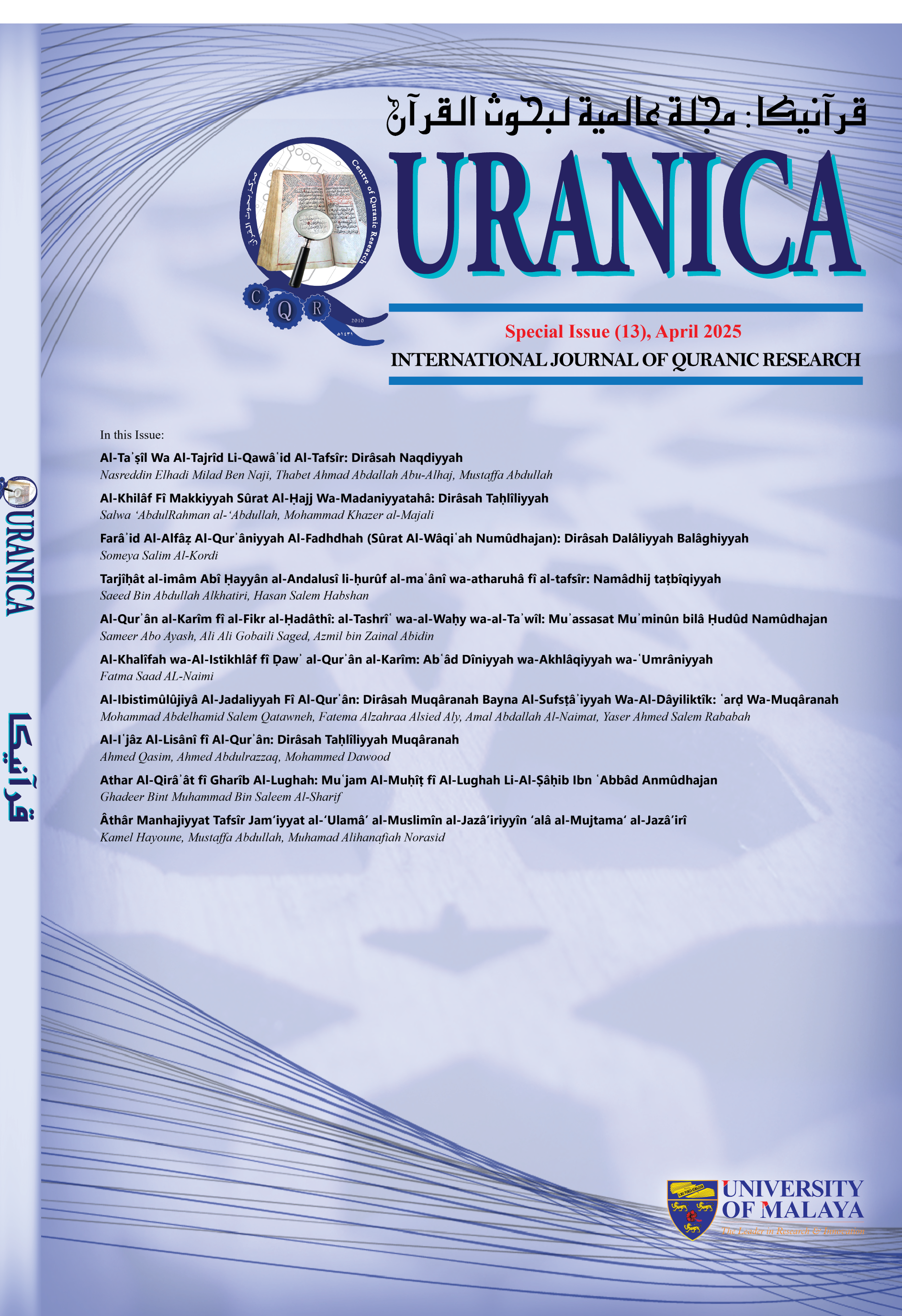Al-Taʾṣīl Wa Al-Tajrīd Li-Qawāʿid Al-Tafsīr: Dirāsah Naqdiyyah
DOI:
https://doi.org/10.22452/quranica.vol17no1.1Keywords:
Theoretical Grounding, Conceptual Refinement, Principles of Exegesis (Qawāʿid Al-Tafsīr), Contemporary, Critical StudyAbstract
This research critically examines the uncontrolled expansion in the use of the term "principles of Quranic exegesis (qawāʿid al-tafsīr)" in contemporary literature and seeks to establish precise methodological controls for formulating these principles according to objective scientific foundations. The study aims to preserve the accurate definition and boundaries of exegetical principles, ensuring they are systematic, well-regulated, and closely tied to elucidating the meanings of the Quran. The researcher analyzed three of the most prominent works on the principles of exegesis and selected six exemplary principles to apply the proposed controls in a practical manner. The study employed three scientific methodologies: the inductive approach for analyzing Quranic texts, the descriptive approach for surveying the current state of exegetical principles in contemporary works, and the analytical approach for evaluating and critiquing these principles. The research yielded several key findings, including: many principles attributed to exegesis lack scientific and methodological precision; the confusion between exegetical principles and those of other disciplines (such as Islamic jurisprudence and linguistics) has weakened the scholarly structure of these principles; and there is a critical need for meticulous examination of Quranic texts to regulate exegetical principles properly. The study also affirmed that authentic exegetical principles are those directly linked to understanding and explaining the meanings of the Quran.
Downloads
Downloads
Published
Issue
Section
License
Disclaimer
QURANICA makes every effort to ensure the accuracy of all its contents. However, opinions, discussions, views and recommendations are expressed in this journal do not necessarily reflect the official policy of QURANICA or views of its editors or publishers. Therefore, QURANICA and its publishers will not be liable for any controversy may be arisen. The journal reserves the right, at its sole discretion, to change its terms and conditions of publications.
Copyright
It is a condition of publication that manuscript submitted to the journal have not been published, accepted for publication, nor simultaneously submitted for publication elsewhere. By submitting a manuscript, the author(s) agrees that copyright for the article is transferred to the publisher, if and when the manuscript is accepted for publication.






